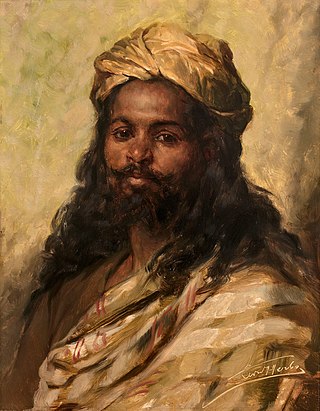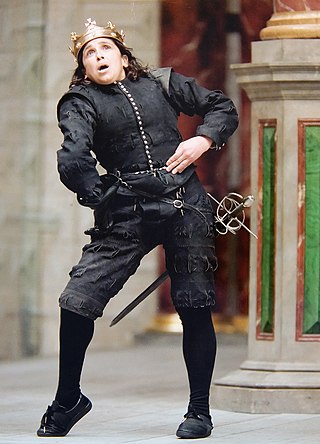Contents
Prologue
Part One: Before the Curtain
1. Beginnings
2. Lessons from the Past
Part Two: The Great Shakespearean Roles
3. Hamlet
4. Henry V
5. Macbeth
6. Richard III
7. King Lear
8. Othello
9. Antony and Cleopatra
10. The Merchant of Venice
Part Three: Contemporary Influences
11. Knights of the Theatre
12. Breakthrough
13. Colossus of the Drama
Part Four: The Silver Screen
14. Early Hollywood
15. Shakespeare on Film
16. In Front of the Camera
Part Five: Reflections
17. On Acting
Epilogue: A Letter to a Young Actress
List of Performances
Index

Othello is a tragedy written by William Shakespeare, around 1603. The story revolves around two characters, Othello and Iago.

The Tragedy of Julius Caesar (First Folio title: The Tragedie of Ivlivs Cæsar), often abbreviated as Julius Caesar, is a history play and tragedy by William Shakespeare first performed in 1599.

Antony and Cleopatra is a tragedy by William Shakespeare. The play was first performed around 1607, by the King's Men at either the Blackfriars Theatre or the Globe Theatre. Its first appearance in print was in the First Folio published in 1623, under the title The Tragedie of Anthonie, and Cleopatra.

Sejanus His Fall, a 1603 play by Ben Jonson, is a tragedy about Lucius Aelius Sejanus, the favourite of the Roman emperor Tiberius.

"Asp" is the modern anglicisation of the word "aspis", which in antiquity referred to any one of several venomous snake species found in the Nile region. The specific epithet, aspis, is a Greek word that means "viper". It is believed that aspis referred to what is now known as the Egyptian cobra.

Crocodile tears, or superficial sympathy, is a false, insincere display of emotion such as a hypocrite crying fake tears of grief. The phrase derives from an ancient belief that crocodiles shed tears while consuming their prey, and as such is present in many modern languages, especially in Europe where it was introduced through Latin. While crocodiles do have tear ducts, they weep to lubricate their eyes, typically when they have been out of water for a long time and their eyes begin to dry out. However, evidence suggests this could also be triggered by feeding.
Diacope is a rhetorical term meaning repetition of a word or phrase that is broken up by a single intervening word, or a small number of intervening words. It derives from a Greek word diakopḗ, which means "cut in two". Diacopae is used in writing to emphasize or describe something. Like other forms of repetition, diacope helps express strong emotions, or help give weight to the repeated word.

Aikaterini Hadjipateras, known professionally as Kathryn Hunter, is an American-born British actress and theatre director, known for her appearances as Arabella Figg in the Harry Potter film series, Eedy Karn in the Disney+ Star Wars spinoff series Andor, and as the Three Witches in Joel Coen’s The Tragedy of Macbeth.

The Colorado Shakespeare Festival is a professional acting company in association with the University of Colorado at Boulder. It was established in 1958, making it one of the oldest such festivals in the United States, and has roots going back to the early 1900s.

Seth Gilliam is an American actor. He is best known for his portrayals of Ellis Carver on The Wire, Clayton Hughes on Oz, Dr. Alan Deaton on Teen Wolf, and Father Gabriel Stokes on The Walking Dead.
The Illinois Shakespeare Festival (ISF) is held in Bloomington, Illinois, United States at Ewing Theatre and in Normal, Illinois, United States at the Center for Performing Arts Theatre at Illinois State University. The Festival began in 1978 and celebrated its 45th season in 2023. The Festival has traditionally presented three plays. Although all three may be Shakespeare plays, the Festival has also included different types of theater, such as Restoration comedy, Commedia dell'arte, or works by contemporary playwrights.

The False One is a late Jacobean stage play by John Fletcher and Philip Massinger, though formerly placed in the Beaumont and Fletcher canon. It was first published in the first Beaumont and Fletcher folio of 1647.
Charmion, alternatively Charmian, was a trusted servant and advisor to Cleopatra VII of Egypt. Plutarch, in his Parallel Lives biography of Mark Antony, writes that Charmion managed the principal affairs of Cleopatra's government; therefore, she held an important position in Cleopatra's trusted circle.

Thousands of performances of William Shakespeare's plays have been staged since the end of the 16th century. While Shakespeare was alive, many of his greatest plays were performed by the Lord Chamberlain's Men and King's Men acting companies at the Globe and Blackfriars Theatres. Among the actors of these original performances were Richard Burbage, Richard Cowley, and William Kempe.
Women in Shakespeare is a topic within the especially general discussion of Shakespeare's dramatic and poetic works. Main characters such as Dark Lady of the sonnets have elicited a substantial amount of criticism, which received added impetus during the second-wave feminism of the 1960s. A considerable number of book-length studies and academic articles investigate the topic, and several moons of Uranus are named after women in Shakespeare.

Georgia Shakespeare was a professional, not-for-profit theatre company located in Atlanta, Georgia, in the United States on the campus of Oglethorpe University from 1985-2014. Georgia Shakespeare produced three plays annually, primarily between June and November. Twelve educational programs were developed in the history of Georgia Shakespeare. These programs included "The High School Tour", a "High School Acting Competition", "Camp Shakespeare", a "High School Conservatory", a "No Fear Shakespeare" training program for educators, after school residencies, school tours, student matinees, classes for professionals, and in-school workshops. At its peak, it welcomed 60,000 patrons annually to its performances.

The following outline is provided as an overview of and topical guide to the life and legacy of William Shakespeare, an English poet, playwright, and actor who lived during the 17th century. He is widely regarded as the greatest writer in the English language and the world's pre-eminent dramatist. He is often called England's national poet and the "Bard of Avon".

Race-reversed casting, also called photo negative casting, is a form of non-traditional casting in acting. The concept revolves around reversing the race of characters being played. The concept was intended as a way to open up non-traditional character roles to more actors but has received complaints that it waters down racial differences.














